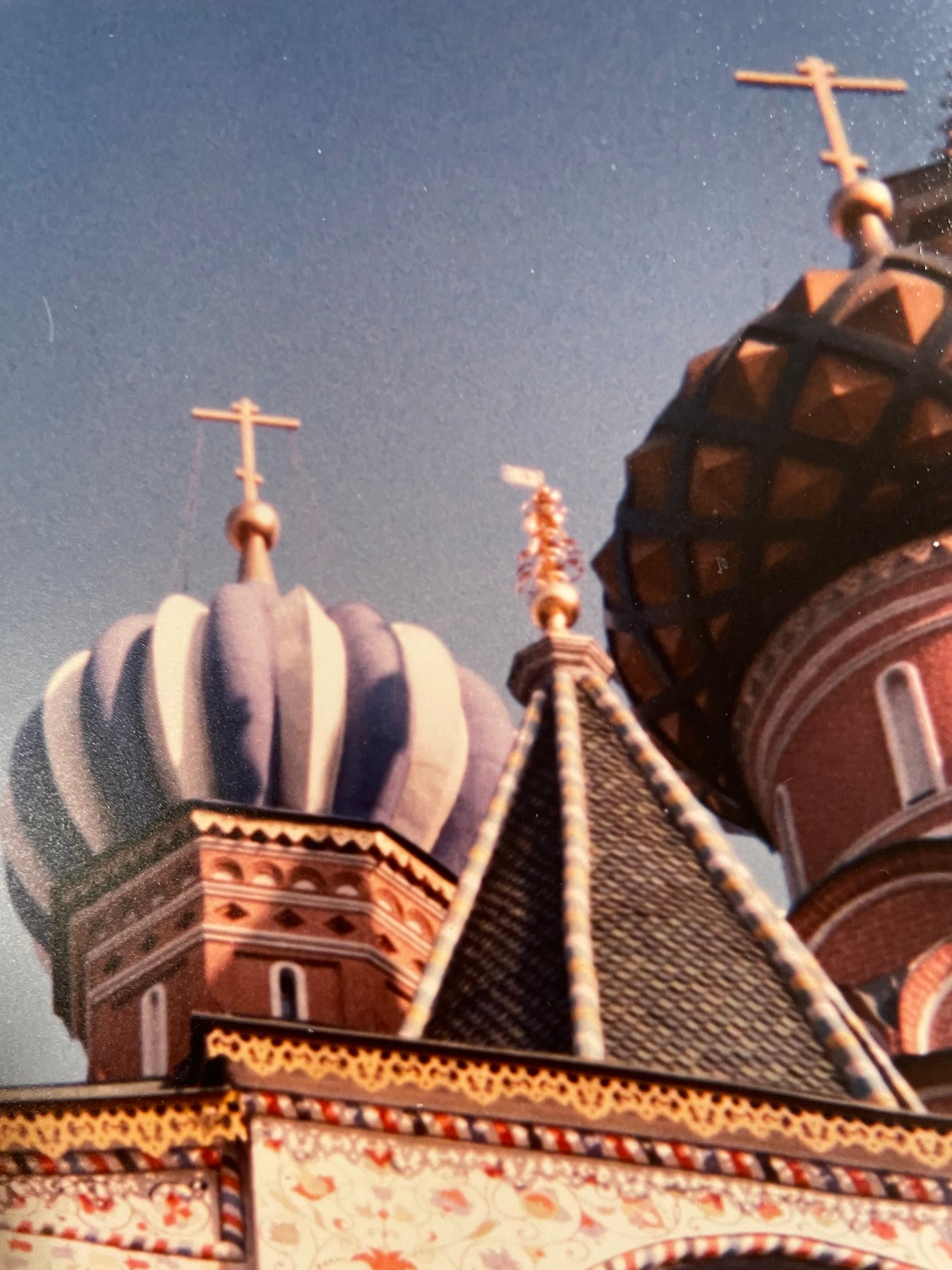MAY 15, 2022 – As the train approached Yaroslav Station in Moscow seven days after departing Khabarovsk, Sasha, my carriage attendant, and Yuri, chief of the train crew, found their way to my compartment. Yuri wanted to give me directions to the upscale restaurant to which he’d invited me for dinner the following evening. Sasha wanted to wish me farewell and good luck in my subsequent travels. He thanked me again for the St. Patrick’s Day 5-Mile Run T-shirt that I’d given him.
When we disembarked at the platform, however, Sasha’s world was turned upside down. Unexpectedly, his (distraught) wife was on hand to meet him. Through a shower of tears, she burst forth with a barrage of words. Sasha froze, and Yuri, who’d witnessed the whole scene, explained to me that someone had broken into the couple’s apartment and picked the place clean.
In the moment, I was glad I hadn’t accepted anything for the St. Patrick’s Day T-shirt. By Yuri’s explanation, Sasha and his wife would need ever kopek of the 50 rubles that Sasha had offered me for the shirt. Also, I couldn’t help but think of the conversation I’d had with Yuri and Sasha just the night before on the train, during which they’d made a big effort to contrast their crime-free society with my crime-ridden land. Under the circumstances of Sasha’s terrible misfortune, I wasn’t about to remark, “So much for the crime-free utopia.”
* * *
When traveling abroad, the visitor observes contrasts—good and bad**—with attributes of one’s one country and culture. Judgments about the contrasts are influenced by one’s biases. A left-leaning Westerner critical of capitalism’s excesses might have rightly concluded that no Russians of the times (1981) “weren’t starving,” whereas a right-leaning American hell-bent on financial profitability might have fairly determined that no Russian of that era “was free.”
I tried to be objective but with uneven success. Too often my own set of prejudices colored my view. Respecting and appreciating literature, for example, I was keenly aware of the many book stores and kiosks I saw in Russia. I was equally impressed when many of the Russians aboard the train asked whether I liked classic Russian literature and how popular it was in America—then went further to tell how Russians were familiar with American literature, often mentioning Hawthorne, Mark Twain, even Norman Mailer. I highlighted this in my letter home, and in contrast hurled blame at the negative influence of television on American culture. In this regard—literature vs. television—I favored Russia, but it was the conclusion of a narrow analysis: unmentioned was the contrast between Walter Cronkite anchoring the CBS Evening News (and his counterparts at rivals ABC and NBC) and the Party Line on Russian television.
In the case of Radio Moscow, I was more objective. With a personal prejudice in favor of classical music, I was glad to hear a steady stream of it in public places, but I was also aware of the price. In my letter home, I wrote, “‘High culture’ is also more widely experienced [in Russian] than in the U.S. For example, on the trains and in the parks, Radio Moscow was always within earshot—the programming consisting mainly of classical music. But note too, space between Tchaikovsky and Shostakovich was the hot, party propaganda.”
Today I reconsider the question I posed 41 years ago: To what extent are Russians part of some impenetrable “riddle, wrapped in a mystery, inside an enigma”? My answer is slightly different from my conclusion when I was 26: to the same extent—no more, no less—that we Americans are captive of our history and our cultural influences.
_________________
*One of my favorite “different but good” practices that I observed abroad was in New Zealand. At busy intersections in the largest Kiwi city, Auckland, pedestrians were afforded special accommodation by way of diagonal crosswalks fully controlled by their own set of traffic lights. The winning “bad practice” award was in Brindisi, Italy, where I watched as a policeman, having first made some error in writing out a parking ticket, tore the rather large piece of paper (and carbon) off his ticket pad, crumpled them up and toss them over his shoulder before re-writing the ticket. That shocking (to me, anyway) incident reminded me of my father’s story about his boyhood trip to Scandinavia in 1934, when in Bergen, Norway he saw a fellow American drop a candy bar wrapper onto the sidewalk, whereupon an alert Norwegian scampered forth, picked up the wrapper, then scurried to the American and said, “Here. You dropped this.”
(Remember to subscribe to this blog and receive notifications of new posts by email.)
© 2022 by Eric Nilsson
